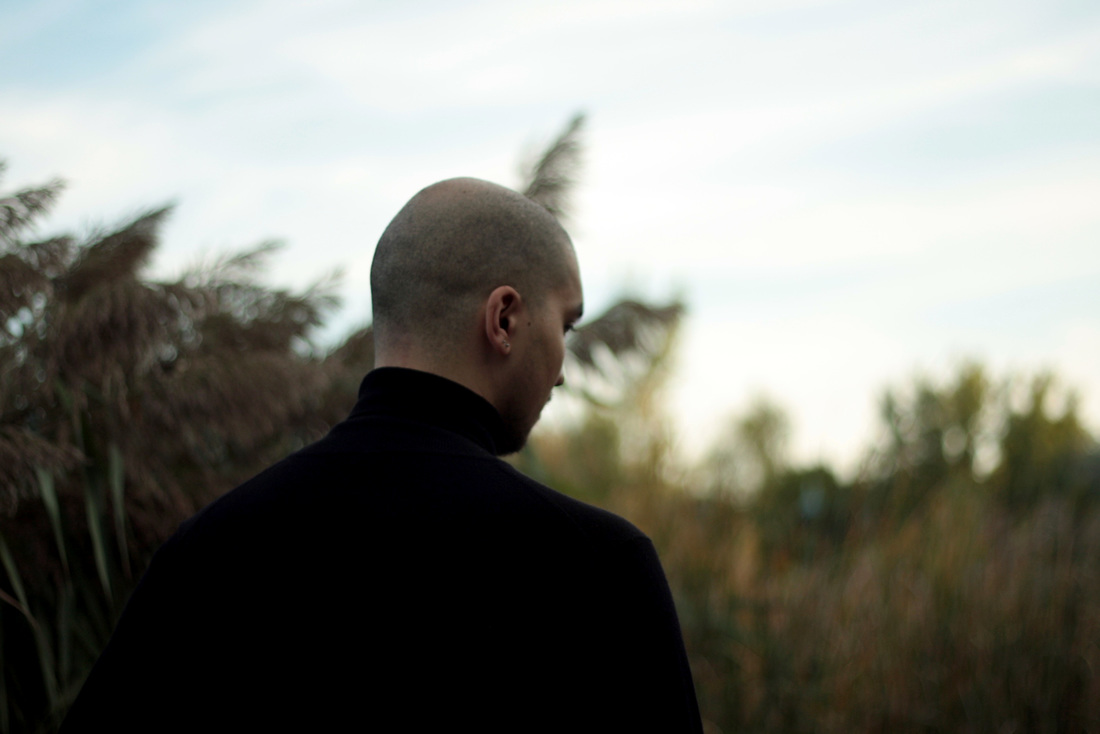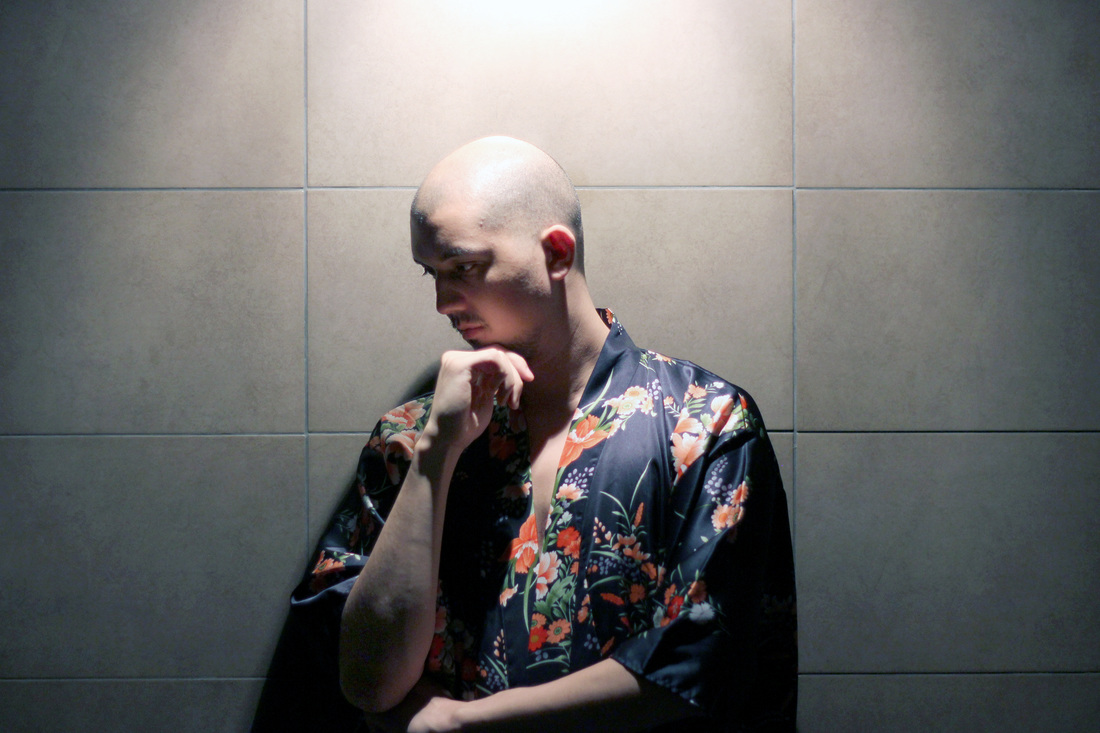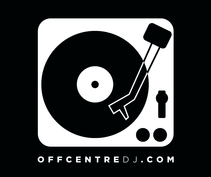|
OCDJ - What’s the story of Discrete? How did you get started in music?
Discrete - I began producing before I started DJing. A friend of mine lent me some sound software I started experimenting with in elementary school and I was using my tape decks to sample jazz and classical music from the radio. I grew up listening to a lot of hip-hop too and I think that's how I got introduced to DJing. DJ Premier, DJ A-Trak, Mix Master Mike and some of the other DMC turntablists inspired me to start scratching, then I was introduced to house music. I listened to a ton of mixtapes while I was studying and painting in high school then I slowly transitioned from producing visual art to producing music. From then on I found myself digging deeper and deeper into house and techno. That was over a decade ago. OCDJ - Is there a specific place/space/state that you find inspiration in? Discrete - The present moment. My favorite pieces always spawn from a state of being completely open to ideas and rid of inhibition. This usually means I'm working quicker because I’m saying yes more frequently to creative decisions. Pop art and the sensationalist movement really helped me get into the moment because it had a jarring visceral effect on me. A lot of my inspiration comes from visual art because most of my experience is in art history. I started meditating prior to my DJ sets to help with performance anxiety. I'm a strong believer in synchronicity and karma so there are definitely spiritual parallels between my practice and my music. Deep house is a spiritual thing and always has been. There's something really powerful about how it unites complete strangers. OCDJ - What movie would your music be the soundtrack for!? Discrete - I'm a deeply existential person so I feel like if my music were to be a soundtrack it would be a drama played by myself or some doppelganger. That or a documentary biopic.
OCDJ - Your Savvy Records podcasts are really enjoyable...how much planning goes into DJing for you?
Discrete - My mixtapes are much more meticulously produced then my live DJ sets. A lot of planning goes into my mixtapes whereas my DJ sets are a more stream-of-consciousness approach. For my mixtapes, I categorize my music according to mood, aesthetic, and vocals and a theme emerges. I break down the timeline into basic plot points and the narrative forms. Introduction, body, climax, denouement, et cetera. When I'm DJing I try to be as present as possible. You have to be able to read the energy in the room and go with the flow. Sometimes I have songs I'm really excited to play at a gig but when I arrive at the venue it just doesn't seem to suit that environment so it's more about adapting to the space. Toronto’s techno audience is still very niche. OCDJ - What made you want to start your own Label? Discrete - Survival. I was signed to a few foreign independent labels when I was younger but I had difficulty managing my finances because a lot of these record companies were overseas. I decided that I had enough experience after several years of DJing and producing to publish my own content. I also established connections with a lot of artists along the way so I had plenty of demos and unsigned material just sitting in my inbox waiting to get things started. OCDJ - It was great to run into you at the Junos in Calgary this year. What was your experience of being nominated for Electronic Album of the Year like? Discrete - It was a very emotional experience for me because I was always alienated for expressing myself differently than others. I became used to the idea that people wouldn't share the same feelings around the type of music I make or listen to so I had difficulty accepting that I was nominated at first. Then I realized being embraced on that level in your home country is actually quite profound and a real honor. It's a rare life changing experience and I'm definitely grateful for that. Bumping into you at the Google Party was just the icing on the cake. It was a night to remember, I wish I had a recording of your set!
OCDJ - In your time at Off Centre, is there any one moment that sticks out for you as a highlight?
Discrete - I remember wanting to go to school for DJing but couldn't find much in the way of postsecondary education. The course in itself was a very positive foundation for me. It was also inspiring to see how you’ve adapted to the industry and made a living to support yourself and your creativity. The mastering section was the most practical because I was just launching Savvy Records at the time. OCDJ - Love the new album! Can you tell us a little about your creative process. What brought about the title “In My Room”? Discrete - Thanks Erik, I’m glad you enjoyed it. My projects stem from folders filled with sounds I cut out from other tracks. I organize the sounds by imagery and layer them like a collage. I let the samples speak to me and tell me where they want to go, whether they match or juxtapose each other they develop their own dialogue. The title track ‘In My Room’ is an homage to the archetypal bedroom producer. I produced the entire album at home and live in a tiny bachelor apartment. I wanted to exaggerate the creative process by minimizing my materials. I don't use any fancy analog synthesizers, microphones or sound systems. Most of the content I use I found for free or salvaged from records at the thrift store. I also like to sample film because there are lots of interesting sound bites to draw from and it creates an interesting meta narrative and allusion. I can't help but notice the differences between image and sound because most of my creative development was spent looking at art. Images are static and silent but music involves time and is invisible. I like the idea that samples are like time capsules and I could transcend time and collaborate amongst any group of artists I want with no social contradiction. OCDJ - Is there any essential piece of advice would you give to aspiring producers that would help them finish a project? Discrete - Be more present. Never work when you don't feel like it and always work when you feel inspired. Focus on your most exciting projects and practice letting go of projects that no longer have meaning to you. I find the most challenging part of being an artist is this constant state of grieving. We're always changing and evolving as we're exposed to new inspiration and experiences which means letting go of old stuff in order to make room for the new. In the East the Buddhists call this detachment. They practice this by creating immaculate and elaborate murals called mandalas out of sand which they release into a river. This practice of detachment helps exercise our ability to move fluidly through the creative process. I discovered my spiritual practice out of necessity, it helps my creative blocks. OCDJ - Shout outs or last final words? Discrete - Be present, love yourself unconditionally, and try not to take anything too seriously. Shoutout to DJ Sneak, Mousse T, and Dave Pezzner for discovering and supporting my music these past few years. I also want to dedicate this album to all the introverts and bedroom producers who are trying to make a living as an artist. Being an artist is challenging but if we continue to inspire and support each other it makes it that much easier. Is it plugged in? Did you turn it on?....
Might think those are obvious things to do when it comes to hearing sound but believe me some of your favourite dj's have missed those steps :) We've decided to put together a little checklist to help you get started. Let us know if we missed anything, add it to the comments below. In recent years, there’s been a significant amount of controversy in the electronic music community about what qualifies as a live performance. These days there are several methods with which to perform that the preconceived notion of the ‘live’ performance is often left up in the air. Traditionally speaking, the process of performing live music has been quite simple - bring your sheet music, tune your instrument, and play. Regardless of whether or not the artist is performing solo or in a group, there is always an element of spontaneity - no matter the artist’s skill level, live performances can be full of mistakes and will never sound like the original studio material and it shouldn't have to. In a 2013 article from FACT magazine, artist Xavier Thomas aka ‘debruit’ said, “You have to be able to make mistakes to have a feeling of live-ness. And it's also presenting some sort of difference between your music in a live format as opposed to a recorded performance to people that might already know your work” (Fintoni). Before we continue, it's important to recognize the distinction between DJs and Producers. A DJ’s strength traditionally lies in engaging a live audience and witnessing their immediate reaction while working with their instruments, the turntable, mixer and crate of music. A producer also needs to work with their instruments in a studio environment with digital and or analog equipment to effectively convey an emotion or idea. Sometimes, Producers who are strong in the studio may lack the performance chops to rock a crowd. And on the flipside, seasoned DJs who can successfully mix for hours may lack the technical knowledge to produce. In these situations, those who are producers first may resort to pushing play on pre-recorded sets, and those who are DJs first may enlist the aid of a friendly neighbourhood ghost producer. Both are equally taboo topics which question the legitimacy of the artists skills. It’s sort of like realizing your favourite singer is lip-synching and the microphone they are holding is merely a prop, some singers will always perform better in the studio than they do onstage. The same can be said for the producer playing a pre-recorded set at the mainstage and the revered DJ who releases a song made by someone else. Without a transparent connection between the two sides, confusion is bound to develop as the actual product and the expectations communicated on behalf of the artist, the promoter, and or the venue cease to match up with one another. The essence of live music performance is that there should be a chance that things could go wrong, but it is the skill of the performer to bring it to new heights and keep it all from falling apart. Otherwise it's like just going to watch a movie. Sharing the experience in an environment with other people does have the potential to transform your relationship to the art, but that's just the equivalent of pressing play, and for many reasons we expect more from music. There will always be audiences who will appreciate the performer who walks the line with artistic integrity and there will be audiences who simply seek the thrill of dancing live to music regardless of the performer’s technical prowess. Both are fine, but as electronic music grows and audiences mature they will also inevitably become more aware of what is actually going on in the booth and/or on the stage. The room for error and genuine talent should come together in a way that compliments the audience's tastes so as not to set up some sort of false expectation whereby the artist can get away with pretending to perform. For those looking solely for a visceral experience perhaps the play button with some banging tracks, flashing lights, and fireworks will do. The performance, however, often informs the experience and this speaks to the classic dance floor notion of energy transfer between performer and audience and the question remains can that truly happen when it's a one way conversation? Citations: Fintoni, Laurent. "The Great Live Music Roundtable: Six Producers Debate the Future of Live Electronic Music." FACT Magazine. FACT Magazine, 31 Oct. 2013. Web. 19 Mar. 2016. In this episode of infamous OCDJ-TV Steptone & Slowpitch dive into the the Space Bag of questions and attempt to find the true answers that lie beneath the surface of DJing & Production. Will they emerge successful!? Find out as they duck and dodge their way through the challenges of turntable, DJ, beat making, and all around electronic arts philosophy. A proper "release" (aka "drop") is one of the most important fundamental DJ techniques not only for scratching, but also for successfully mixing/transitioning from one track to the next. Since this is a cross fader dependent technique, In this video we take an in depth look at the role of each hand. Think tapping your head and rubbing your stomach! Just like any other instrument, it's all about developing hand and/or limb independence. This comes with time and lots of practice. A proper "release" (aka "drop") is one of the most important fundamental DJ techniques not only for scratching, but also for successfully mixing/transitioning from one track to the next. Since this is a cross fader dependent technique, In this video we take an in depth look at the role of each hand. Think tapping your head and rubbing your stomach! Just like any other instrument, it's all about developing hand and/or limb independence. This comes with time and lots of practice.
Next up - try the "Drop Cut": https://www.youtube.com/watch?v=yGVHYg9340E Circles & Squares: http://www.circlesquaresound.com SUBSCRIBE to receive all the latest updates. The end game is to help you reach your creative potential. DJ Program info can be found at: http://www.offcentredj.com/dj-programs.html At Off Centre your DJ education begins with the original industry standard Technics 1200. Along the way you'll incorporate various skills, technologies, and philosophies to create clean, creative, and original mixes. Share the knowledge! Just one of the many ways to take your hand control, scratching, and turntable performance to the next level. SUBSCRIBE to receive all the latest updates. The end game is to help you reach your creative potential. |




 RSS Feed
RSS Feed
